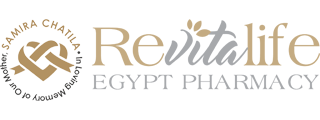Total Parenteral Nutrition
- Home
- Total Parenteral Nutrition

Benefits of Choosing Revitalife TPN
- Multiple levels of clinical pharmacist involvement based on hospital-specific protocols
- Consultation services for physicians with us trained clinical pharmacist
- Produced by USP 797 standards
- Automated TPN specific analysis of each unit produced
- Top-quality medication components and consistency
- No One Size Fits All: knowing that TPN is the art of tailoring, using Revitalife customized TPN is the best option for your patients unlike ready-made TPN which are suitable only for peripheral infusions leading to a lack in proper caloric provision causing hypocaloric states
Cost Saving
- No equipment purchasing for an institution
- No procurement and storage of TPN compounder consumables
- No procurement and storage of TPM components
- No maintenance and upkeep cost of compounder
- Save on staffing expense
- Save on the cost of 797/800 clean room, save in the valuable hospital space otherwise dedicated to cleanroom facility
- Maintenance and updating equipment eliminated
Scope of Services
We are committed to assisting our partnering institutions in establishing a gold standard parenteral nutrition clinical service line. From the education of providers to real-time day-to-day clinical guidance, Revitalife will help ensure that an entity’s decision to offer parenteral nutrition will confirm with the highest clinical standards.
Parenteral Nutrition Education
Our medical and pharmaceutical staff will conduct hands-on training for on-site providers.
Training will consist of:
- Fundamentals of parenteral nutrition
- Appropriate selection of patients
- Day 0 parenteral nutrition
- Day-to-day monitoring and adjustment of parenteral nutrition
- TPN cycling
- Home TPN advantages and pitfalls
INTRODUCTION
Parenteral Nutrition (PN)is a compounded medical intravenous solution that can provide all nutritional requirements to patients who cannot, should not, or will not eat adequately to maintain their nutrient stores. These patients are already, or have the potential of becoming, malnourished. This is currently provided to critically ill patients with inadequate oral intake for 7 days, or in those patients in whom inadequate oral intake is expected over a 7 days period. Examples of these patients include burn victims, peri-operative support of patients with moderate to severe malnutrition, acute exacerbations of Crohn’s disease, GI fistulas, extreme short bowel syndrome, critical care patients who will be NPO for prolonged periods of time, and severe acute necrotizing pancreatitis. The most patient population in need of TPN are Neonates where PN should be initiated within the first 24 hours post-partum if enteral feeding could not or will not be tolerated for 2 – 3 days. In addition to these situations, PN should be used when the gastrointestinal tract is not functional or can-not be accessed and in patients who cannot be adequately nourished by oral diets or Enteral Nutrition.
Currently all parenteral nutrition (PN) compounding in the UAE is done by individual hospitals. There are variability compounding practices, in addition to quality and safety metrics. Many facilities in the region do not meet USP 797 standards for intravenous preparations. This dilutes quality, presents a safety risk, and increases chances for negative outcomes. A large reason for this is the lack of an individual hospital being able to leverage economies of scale in the production of PN and other intravenous preparations.
Recognizing the disadvantages of maintaining a small-scale parenteral nutrition production line, over half of all hospitals in the United States have outsourced their PN production to independent entities. Additionally, there is another category of patients who is clinically stable and would be a candidate for discharge if not for their continued PN requirement. Their continued hospitalizations expose patients to increased costs, decreased quality of life, and put them at risk for hospital acquired infections. The only barrier to these patients’ discharge is the lack of outpatient PN. PN not only aim at caloric and nutrients provision to patients, but also a significant tool in reversing the inflammatory process and managing underlying clinical illnesses, saying so means that TPN is a valuable clinical modality
Revitalife – Total Parenteral Nutrition
At Revitalife, we have been committed to providing customized, patient-centered therapeutics to residents of the UAE since 2011. In line with this legacy, we have started offering TPN compounding services to hospitals and home health facilities throughout the region. It is our goal to extend our partnering facilities’ clinical capacity, and thereby improve the care that they offer.
We set up education programs to train providers on the appropriate ordering and utilization of parenteral nutrition. We have a seamless product ordering process with responsive customer care. Our activities are overseen by U.S. trained clinical pharmacists who are available inquiry 24/7.
Things to Expect with Revitalife TPN
- Gold-standard compounding with industry-leading technology
- Precise delivery windows for standardized infusions start times
- Temperature-controlled storage from production to delivery
- Produced by united states trained clinical pharmacist
- Reviewed by USA trained Gastroenterologist
- Customizable ready-made starter TPN bags based on the hospital population

